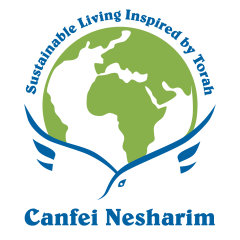Preparation
Intended audience:
Children up to 12 years old.
What to Provide:
Water to drink- preferably in reusable cups.
Introduction
“All the streams flow to the sea yet the sea is never full. From the place in which water comes, there it returns.” (Koheles 1:7)
Explain that the above is an interesting quote from Koheles (Ecclesiastes), one of the books in the Tanach which is read on Sukkos. If the participants are very young or if they are having trouble understanding the quote, have them close their eyes and picture many streams of water flowing in to a sea which never fills up.
Ask participants the following:
- What do you think this passage means?
- How this is possible?
- If there is so much water in this world and the lakes and rivers and seas keep filling up, then why do we have to worry about saving water? The answer may be found by asking them the following: What have you poured down the sink lately? (eg. Paints from paintbrushes, cleaning detergents if they have washed the dishes.)
- Where does water go when it goes down the drain? What do you think happens to the things – paints and detergents—that are in the water? (Some of them get broken down and returned to the land, but a lot of them can damage the next species [animals, plants] that the water goes to.)
Answer:
We need to save water because when we use water, we often pollute it and cleaning it up again is a very hard job for human beings. It’s easier for humans to clean up the water that we pollute if we don’t waste it and keep it as clean as we can.
All the water that we drink or bathe in or swim in is the very same water that Hashem put on the earth during the seven days of creation when he separated the waters of the heaven from the waters of the earth. Just imagine! The water we drink is the same water that flowed through the Nile River that Moshe was rescued from! It’s the same water that was split when the Jews crossed the Yam Suf.
Activity
Give each participant a cup of water but tell them not to drink it yet. Go around the circle and have each participant raise their glass in a toast and say ‘l’mayim!’ to one time in the Jewish people relied on water. If participants can’t name an incident from Tanach, help them think of one or have them make a toast to mayim for a time that it affected them personally. When everyone has had a chance to share, make a bracha on the water and let the students enjoy their drinks.
Reminder:
Make sure they remember their toast so that they can repeat it later on in a presentation to the parents as part of the Simchas Beis Hashoeva party. Have one participant introduce why they are making a l’mayim, and then lead the parents in a big l’mayim too!
